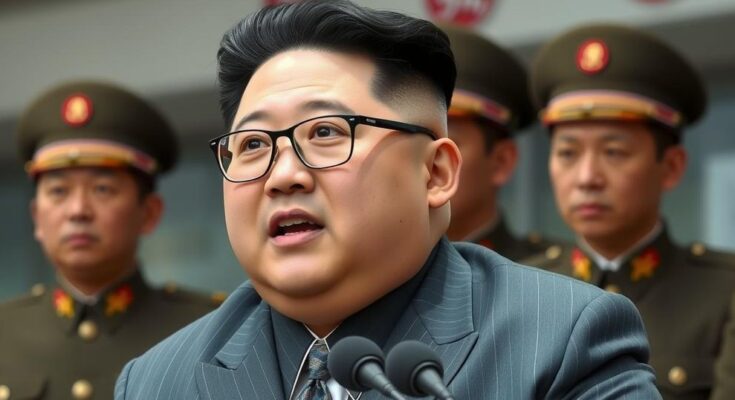North Korean leader Kim Jong Un announced the implementation of the most stringent anti-U.S. policy shortly before Donald Trump takes office. The statement comes amid heightened tensions and increasing military cooperation between North Korea and Russia, complicating prospects for renewed diplomacy. Experts suggest that immediate talks between Trump and Kim are unlikely due to Trump’s focus on other global conflicts.
North Korean leader Kim Jong Un has pledged to adopt the most stringent anti-U.S. policy ahead of Donald Trump’s assumption of the presidency. This announcement comes just weeks before Trump is set to take office, as reported by North Korea’s state media. While past interactions between Trump and Kim exemplified efforts towards diplomacy, experts believe that immediate talks between the two leaders are improbable due to Trump’s focus on global conflicts, especially in Ukraine and the Middle East. Moreover, North Korea’s support for Russia complicates prospects for renewed diplomatic engagement.
During a recent meeting of the ruling Workers’ Party, Kim labeled the United States as the “most reactionary state” while criticizing the U.S.-South Korea-Japan security alliance for evolving into a threatening nuclear bloc. His statements emphasized the necessity of advancing North Korea’s military capability and enhancing the resilience of its armed forces. Although detailed strategies were not disclosed, Kim asserted that a robust stance against the U.S. was essential for the nation’s long-term security interests.
Prior to the breakdown of discussions in 2019, Trump and Kim had previously maintained a more cordial relationship, which included personal remarks that characterized their exchanges as fostering goodwill. However, in the aftermath of stalled negotiations over sanctions, North Korea has escalated its missile testing efforts aimed at enhancing its nuclear arsenal targeting the United States and its allies. In response, the United States and South Korea have augmented their military drills, which North Korea perceives as preparation for invasion.
The dynamics have further shifted due to North Korea’s increasing military cooperation with Russia, particularly as the North has reportedly supplied conventional weapons to support Russia’s military actions in Ukraine. This development raises concerns over the potential exchange of advanced military technology between North Korea and Russia, particularly regarding missile capabilities. Additionally, Russia and China have consistently obstructed U.S. initiatives to impose further sanctions on North Korea despite its defiance of U.N. resolutions. In a past statement, Kim condemned his dialogues with the U.S. as affirmations of Washington’s enduring hostility, underscoring his commitment to nuclear advancement as a mechanism for countering perceived external threats.
The current geopolitical climate between North Korea and the United States has been fraught with tension and fluctuating attempts at diplomatic engagement. Following a series of high-profile meetings between Donald Trump and Kim Jong Un during Trump’s first administration, the relationship became increasingly complicated. After negotiations stalled due to disputes over nuclear disarmament and economic sanctions, North Korea intensified its weapons testing program. This context has been exacerbated by North Korea’s growing military ties with Russia and its involvement in the ongoing conflict in Ukraine, creating additional layers of complexity in U.S.-North Korea relations.
In summary, Kim Jong Un’s commitment to instituting the toughest anti-U.S. policy reflects deep-rooted tensions in North Korea’s international relations, particularly with the United States. The backdrop of previous diplomacy, coupled with North Korea’s expanding military collaboration with Russia, complicates any potential for future negotiations. Observers remain cautious about the ramifications of these developments on regional stability and international security.
Original Source: apnews.com




